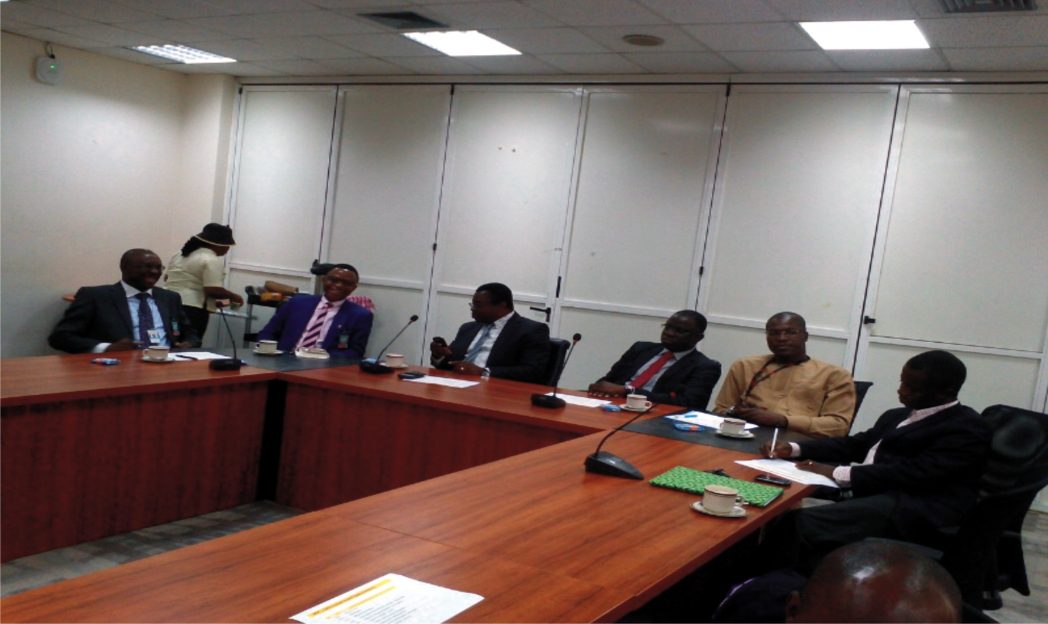Business
MWUN Protests Salary Disparity At APMT Terminal

The leadership of Maritime Workers Union of Nigeria (MWUN) has expressed worries over the disparity in salary and allowances between foreign personnel and Nigerian employees doing the same job at APMT Terminals Apapa.
In a statement signed by the President General and Secretary General, Comrades Adewale Adeyanju and Felix Akingboye respectively, the union expressed disappointment at the concessionaire’s penchant for disregarding Nigerian workers, noting that APMT has no iota of regard for the welfare of its employees.
The statement noted that MWUN should not be held liable in the event of distortion of industrial peace in the APMT Terminal.
This, the union said, was based on the low salaries and allowances being offered as negotiation, which it stated was far below the industry’s standard.
It recalled that a 7-day ultimatum was issued, which had expired, adding that a total of four meetings was held in an attempt to resolve the lingering issues raised at negotiation proved abortive.
“The leadership of Maritime Workers Union of Nigeria on Wednesday June 22nd 2022 met with the management of APMT Nigeria to discuss the review of the Condition of service (Collective Bargaining) for our members for this fiscal year 2022.
“Unfortunately, we are forced to bring to the notice of the general public that after series of meetings this last one being the 4th, the meeting like the several others ended in a stalemate.
“This is as a result of the refusal of the management of APMT to concede to workers’ demand for appropriate and industry compliant increase in their salaries across board. On this note a seven (7) day ultimatum was issued, which has since expired”, the said.
MWUN also affirmed that APMT Nigeria has overwhelmingly exceeded its projected profits and return on investment, noting that members have been instrumental to this achievement.
“We are, therefore, appalled that APMT employees (our members) who toil day and night to achieve this height are denied enjoyment of their hard work.
“The union has long noted that APMT has no iota of regard for the welfare of its employees — Nigeria Workers. This is underscored from the ridiculously low salaries and allowance being offered as negotiation which is far below the industry standard.
“Maritime Workers Union of Nigeria also brings to the notice of the general public, APMT Nigeria management’s penchant to hire foreign personnel in disregard of hiring Nigerians who are eminently qualified to hold and man the responsibilities of these positions.
“Also of note is the disparity in the salary and allowances between foreign personnel and Nigerian employees doing the same job in our nation”, the statement further noted.
By: Nkpemenyie Mcdonminic, Lagos
Business
Agency Gives Insight Into Its Inspection, Monitoring Operations

Business
BVN Enrolments Rise 6% To 67.8m In 2025 — NIBSS

The Nigeria Inter-Bank Settlement System (NIBSS) has said that Bank Verification Number (BVN) enrolments rose by 6.8 per cent year-on-year to 67.8 million as at December 2025, up from 63.5 million recorded in the corresponding period of 2024.
In a statement published on its website, NIBSS attributed the growth to stronger policy enforcement by the Central Bank of Nigeria (CBN) and the expansion of diaspora enrolment initiatives.
NIBSS noted that the expansion reinforces the BVN system’s central role in Nigeria’s financial inclusion drive and digital identity framework.
Another major driver, the statement said, was the rollout of the Non-Resident Bank Verification Number (NRBVN) initiative, which allows Nigerians in the diaspora to obtain a BVN remotely without physical presence in the country.
A five-year analysis by NIBSS showed consistent growth in BVN enrolments, rising from 51.9 million in 2021 to 56.0 million in 2022, 60.1 million in 2023, 63.5 million in 2024 and 67.8 million by December 2025. The steady increase reflects stronger compliance with biometric identity requirements and improved coverage of the national banking identity system.
However, NIBSS noted that BVN enrolments still lag the total number of active bank accounts, which exceeded 320 million as of March 2025.
The gap, it explained, is largely due to multiple bank accounts linked to single BVNs, as well as customers yet to complete enrolment, despite the progress recorded.
Business
AFAN Unveils Plans To Boost Food Production In 2026
-

 Politics5 days ago
Politics5 days agoEFCC Alleges Blackmail Plot By Opposition Politicians
-
Business5 days ago
AFAN Unveils Plans To Boost Food Production In 2026
-

 Sports5 days ago
Sports5 days agoJ And T Dynasty Set To Move Players To Europe
-
Politics5 days ago
Datti Baba-Ahmed Reaffirms Loyalty To LP, Forecloses Joining ADC
-
Business5 days ago
Industrialism, Agriculture To End Food Imports, ex-AfDB Adviser Tells FG
-
Politics5 days ago
Bayelsa APC Endorses Tinubu For Second Term
-
Business5 days ago
Cashew Industry Can Generate $10bn Annually- Association
-

 Entertainment5 days ago
Entertainment5 days agoAdekunle Gold, Simi Welcome Twin Babies

